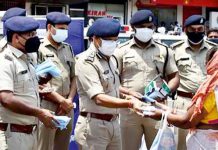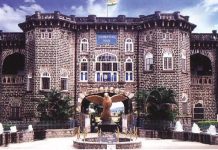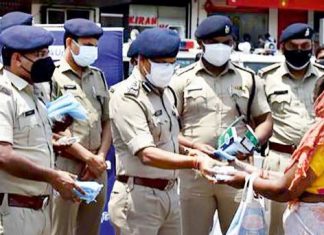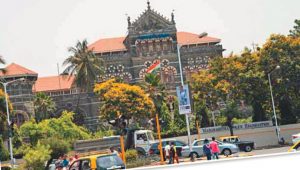 Police is one of the most omnipresent organisations in civil society. Policemen happen to be the most visible representatives of the government. In the hour of need, danger and crisis, when a citizen does not know what to do and whom to approach, the police station and beat constable on the road happen to be the most appropriate and approachable unit. Their role and functions are varied. Whenever an incident occurs, police reaches the spot and investigates the case. We often wonder if all the crime cases are handled by the lower rank police officers, then what do their superiors do?. Do they conduct any inquiries or investigation? Protector delves into the roles and functions of the top cops.
Police is one of the most omnipresent organisations in civil society. Policemen happen to be the most visible representatives of the government. In the hour of need, danger and crisis, when a citizen does not know what to do and whom to approach, the police station and beat constable on the road happen to be the most appropriate and approachable unit. Their role and functions are varied. Whenever an incident occurs, police reaches the spot and investigates the case. We often wonder if all the crime cases are handled by the lower rank police officers, then what do their superiors do?. Do they conduct any inquiries or investigation? Protector delves into the roles and functions of the top cops.
Director General of Police
- The Director General and Inspector General of Police are vested with the responsibility of the administration of the police throughout the state. He is the adviser to government in all matters relating to the administration of the police force. He is responsible to government for the management of the finances, equipment, training and discipline of the force and for its efficient organisation as a means of preventing & detecting crime and maintaining law & order. They are also responsible for the efficient discharge of duties by officers of all ranks. It is therefore, his duty to advice the government on all spheres of police administration and activities having a bearing on law & order. Subject to the government’s approval, he may from time to time frame such orders not inconsistent with the Police Act, as he shall deem expedient, relating to the general administration and distribution of the police force, their places of residence, the inspection of units, the collection and communication of intelligence, modernization and such other matters with a view to keeping the force efficient.
- The Director General of Police is empowered to make Rules and Orders under Police Act. Important Orders & Rules involving radical changes may be issued by the Director General and Inspector General of Police with the prior approval of the government.
- He is the central authority to direct operations in the event of strikes, industrial disputes, riots, disturbances or political movements spread over a wide area. Police action and dispositions necessary to combat such disturbances or movements will be under his general direction and control. In times of serious law & order problems he may deploy the reserve police to such areas as he deems necessary.
- The Director General of Police sends in advance, copies of his tour programme to the Chief Minister, Home Minister, Chief Secretary and Home Secretary. Copies will also be sent to the Commissioners of Police, Addl. Director Generals of Police, Inspector Generals of Police, Dy. Inspector Generals of Police, Superintendents of Police and other related officers.
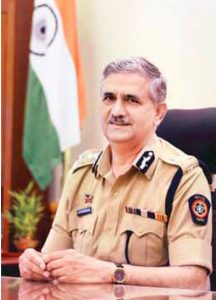 Additional Directors General of Police
Additional Directors General of Police
- The Addl. Directors General of Police assists the Director General of Police in looking after Administration, Law and Order, Crime, Technical and specialised services in the department. Their functions, powers and responsibilities are laid down in the form of Standing Orders by the State Government.
Inspector General of Police
- Inspector Generals of Police work either in the Ranges or in other units to assist the Director General of Police or the Addl. Director General of Police in the a Administration of matters of the police department which come within the purview of the units of the department, placed under their charge. They may exercise all the administrative and financial powers delegated to the head of the department. They shall inspect all the units under their charge in accordance with the scale of inspections prescribed by the Director General of Police. Whenever they go on tour within their jurisdictions, they shall send in advance the copies of their tour programme to the Addl. Director General of Police and Director General of Police and to the concerned Police officers.
Inspector General of Police In-Charge of Zone/Ranges
- The Inspector General of Police in charge of a Zone/Range is a link in the chain of responsibility between the Director General of Police and the District Officer. He shall by regular personal inspection endeavour to establish and maintain efficiency and discipline to ensure uniformity of procedure and practice, and secure co-operation of several Ranges/Districts. He shall control, instruct and advise Range DIGs and Superintendents of Police to be careful and not to supersede one another in their legitimate functions. He will advise, and if necessary supersede Range DIG and Superintendents of Police in times of grave disorder by taking over full control of the situation. He will pay particular attention to the training of and the discipline in the Armed Reserves so that high a standard of efficiency may be reached and maintained. It shall also be his duty to instruct the officers under him regarding man-management and propriety in their conduct and performance of duties.
- The Inspector General of Police is responsible for the maintenance of strict discipline among officers of all ranks. He should be kept promptly informed of all serious cases of misconduct among officers occurring in his range. He is responsible for guiding and directing the efforts of Range DIGs and Superintendents of Police in dealing with such cases, for scrutinizing their reports and for making personal enquiries in cases where exigencies of the matter so demand.
- The Inspector General of Police has a large measure of administrative control within his division/zone. His powers in the matters of appointments, postings, leave, rewards, punishments and appeals will be in accordance with the instructions, orders and rules notified by the government. He can exercise the financial and administrative powers of a head of department.
- The Inspector General of Police shall be easily accessible to all members of the public. He shall hear their grievances and do his best to redress them. He shall meet the members of the public at convenient centers in various taluks, and take steps to improve police-public relations.
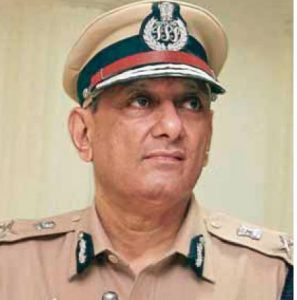 Whenever the Zonal Inspector General of Police visits a range or district headquarters, he shall make it a point to meet all Police Officers who are still on probation so that he can assess the progress of their training and check the work done by them. It is the duty of the Inspector General of Police to ensure that steps are taken for the prevention of crime and particularly ensure that adequate arrangements are made for dealing with any unusual outbreak of crimes. It is also his duty to exercise constant supervision over the course of investigation of cases and ensure that senior officers take adequate part therein. He shall closely watch the investigation of complicated and important cases. He shall aid and control his Range DIGs and Superintendents of Police in the investigation of important cases and the Superintendent of Police should be able to rely on him for encouragement, instructions and advice.
Whenever the Zonal Inspector General of Police visits a range or district headquarters, he shall make it a point to meet all Police Officers who are still on probation so that he can assess the progress of their training and check the work done by them. It is the duty of the Inspector General of Police to ensure that steps are taken for the prevention of crime and particularly ensure that adequate arrangements are made for dealing with any unusual outbreak of crimes. It is also his duty to exercise constant supervision over the course of investigation of cases and ensure that senior officers take adequate part therein. He shall closely watch the investigation of complicated and important cases. He shall aid and control his Range DIGs and Superintendents of Police in the investigation of important cases and the Superintendent of Police should be able to rely on him for encouragement, instructions and advice.- Every Inspector General of Police in charge of a zone/division should send copies of his tour programme to the Director General of Police, the Addl. Director General of Police. (Law & Order) and to the Superintendents of Police under him. He will also forward to the Director General of Police and Addl. Director General of Police, Law & Order by the5th of each month a report showing the details of his touring and inspections done during the previous month.
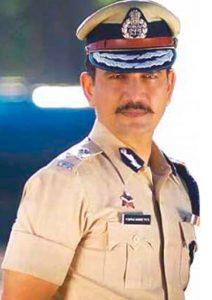 Deputy Inspectors General In-Charge of Range or Special Units
Deputy Inspectors General In-Charge of Range or Special Units
- Where the Inspector General of Police is the in-charge of a Division/Zone, the range will be headed by an officer of the rank of Deputy Inspector General of Police and his powers, duties and responsibilities will be similar to the powers, duties and functions of the Zone/Division IGP.
- The Deputy Inspector Generals in charge of special units shall assist the Director General or the Additional Director General or the Inspector General, as the case may be, in the efficient discharge of all the duties which come within the purview of their jurisdiction. The general power, duties and responsibilities of the Deputy Inspectors General of Police are applicable to the Deputy Inspectors General of Police in charge of Special Units also.
Superintendent of Police
- The administration of the Police throughout a district or part there of shall be fully vested in the superintendent of Police. His work is of varied nature and in doing it, he should keep in view the following essential requirements:-
- To keep the district peaceful and the public satisfied with the security afforded to persons and property
- To keep the force under control, in good discipline, well-trained, efficient and contented
- To maintain cordial relations with the magistracy through other officials and non-officials
- To ensure that the transport, arms and ammunition, stores and buildings belonging to the department are maintained in good condition
- To promote good police-public relations
- To organize good intelligence arrangements.
- To acquire full and detailed knowledge of the district and its current problems from the police point of view
- To participate, to the extent possible and permissible, in welfare activities sponsored by official and non-official agencies
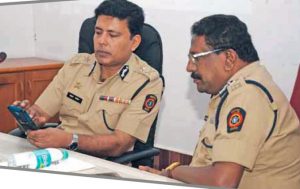 To gain the confidence and loyalty of sub-ordinates personal integrity, impartiality, devotion to duty, and a high sense of justice
To gain the confidence and loyalty of sub-ordinates personal integrity, impartiality, devotion to duty, and a high sense of justice- To ensure by consistent supervision that the prevention, investigation and detection of crime in his district are properly and efficiently dealt with by the force under his command
- To get to know all officers and men serving under him, redress their grievances if any, encourage those who are promising and effectively deal with those who are guilty of misconduct or remiss in the discharge of duty
- To ensure the honesty and integrity of his subordinate officers
- To study crimes and criminals in his district as a whole.
- To pay surprise visits to the police stations at Irregular intervals and check up whether officers and men are alert.
2 The Superintendent of Police should consider it a part of his duty, as far as Possible to give the Sub-Divisional Officers the benefit of his personal guidance and instruction whenever necessary. A sub-division, wherein an officer is acting for the first time as sub- divisional police officer, should be visited as soon as possible after the latter has settled down. The sub-divisions in-charge of junior officers should be visited frequently.
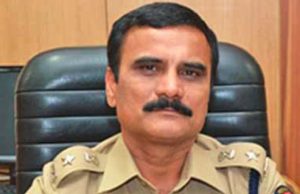 When in headquarters the Superintendent of Police shall attend office on all workdays and shall ordinarily transact all official business in his office. He may however discuss confidential matters in his home-office. He shall be easily accessible to officials and members of the public generally. The Superintendent of Police shall make necessary arrangements for the transaction of all urgent and important work during the period of casual leave availed by him or by any of his Sub-Divisional Officers. The Superintendent of Police shall take steps to ensure that the prosecuting and investigating officers show due interest in the prosecution of cases in court and that no case fails on account of apathy or neglect.
When in headquarters the Superintendent of Police shall attend office on all workdays and shall ordinarily transact all official business in his office. He may however discuss confidential matters in his home-office. He shall be easily accessible to officials and members of the public generally. The Superintendent of Police shall make necessary arrangements for the transaction of all urgent and important work during the period of casual leave availed by him or by any of his Sub-Divisional Officers. The Superintendent of Police shall take steps to ensure that the prosecuting and investigating officers show due interest in the prosecution of cases in court and that no case fails on account of apathy or neglect.- The Superintendent of Police should be fully informed of all activities in his districts that have a bearing on law and order and he must take precautions to ensure that such activities do not result in breach of peace. He should also instruct his subordinates to keep him fully informed of all the developments and he should use his District Special Branch staff to secure information in regard to such developments. The Superintendent of Police is personally responsible to prevent problems arising out of communal tensions and to take prompt action whenever there is any communal problem.
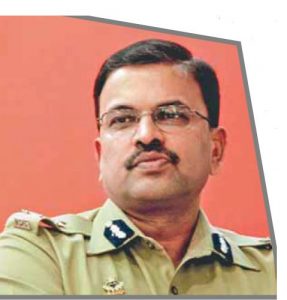 The Superintendent of Police may withdraw subordinate police officers temporarily from any of the Police Stations in his district for duty in other Police Stations in the same district at which extra force is required to deal with an emergency or to make arrangements in connection with fairs, festivals, meetings, processions or the visit of VIPs. The Superintendent of Police is responsible for ensuring that his assistants and deputies work efficiently, and it is his duty to bring to the notice of the Inspector General and DIG and the Director General of Police, any defects of character or temperament or want of zeal, which detract them from their utility as police officers.
The Superintendent of Police may withdraw subordinate police officers temporarily from any of the Police Stations in his district for duty in other Police Stations in the same district at which extra force is required to deal with an emergency or to make arrangements in connection with fairs, festivals, meetings, processions or the visit of VIPs. The Superintendent of Police is responsible for ensuring that his assistants and deputies work efficiently, and it is his duty to bring to the notice of the Inspector General and DIG and the Director General of Police, any defects of character or temperament or want of zeal, which detract them from their utility as police officers.- The Superintendent of Police should deal with crime as a whole, study the criminal problems of districts, rather than merely visiting individual scenes of offences, a duty which more properly falls upon the Sub-Divisional Police Officers and other subordinates who have the main responsibility to ensure that investigations are conducted in the manner prescribed. The Superintendent of Police should visit the scene of offence and supervise the investigation of SR case like: dacoity, highway robbery, murder, culpable homicide not amounting to murder, house breaking and theft of a sensational nature, Any disturbance, riot, or affray of heinous nature, theft of a sensational nature, case of counterfeit coins and currency notes, offences under section 400 and 401 IPC, conspiracy or any other case of heinous nature.
- The Superintendent of Police should immediately visit the scenes and enquire personally into serious occurrences endangering life and property such as heavy floods, train or boat disasters and fires which involve heavy loss of life or property
- The Superintendent of Police should tour all parts of his district, spending longer time in the troublesome localities. In addition to inspecting the police stations, he should visit villages and make himself acquainted with the members of the Village Defence Parties, Citizens Committees, Village officials and principal inhabitants, endeavor to gain their confidence and co-operation and at the same time ascertain the state of crime and enquir into the work of his subordinates.
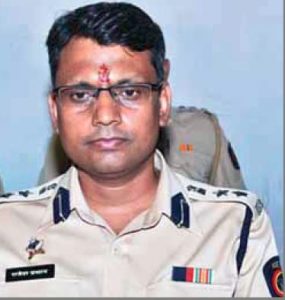 He should take special steps to improve the rapport between the police and the public by holding conferences of important and influential members of the public at convenient centres. He should take the assistance of District and Taluka level integration Committees with a view to promoting peace and understanding among different communities. He will ensure that the services of Citizens Committees constituted by Station House Officers are utilized for prevention of crime and maintenance of law & order. He will also meet the members of weaker section and hear their grievances and take steps to redress them. He should satisfy himself by public contact that his subordinates are doing their duties faithfully and with integrity. His tours should not be rushed but so regulated that he becomes acquainted with the conditions in all important villages. During his visits to villages, he should also make enquiries about the current activities of the known criminals.
He should take special steps to improve the rapport between the police and the public by holding conferences of important and influential members of the public at convenient centres. He should take the assistance of District and Taluka level integration Committees with a view to promoting peace and understanding among different communities. He will ensure that the services of Citizens Committees constituted by Station House Officers are utilized for prevention of crime and maintenance of law & order. He will also meet the members of weaker section and hear their grievances and take steps to redress them. He should satisfy himself by public contact that his subordinates are doing their duties faithfully and with integrity. His tours should not be rushed but so regulated that he becomes acquainted with the conditions in all important villages. During his visits to villages, he should also make enquiries about the current activities of the known criminals.- The Superintendent of Police should maintain a diary which should contain details of all the movements and every type of duty performed by him whether of a routine nature or otherwise and whether in headquarters or on tour. Police Motor Transport should be given personal attention by the Superintendent of Police, who should inspect all Motor Vehicles at least once in a month to ensure timely repairs and maintenance. The Superintendent of Police will send a monthly report to the Director General of Police through the Inspector General and Deputy Inspector General of Police.
Additional Superintendents of Police
- Additional Superintendent of Police in the districts will assist the Superintendent of Police. In such cases the powers, duties and responsibilities will be laid down in a Standing Order to be issued by the Director General of Police with the approval of the Government. They will work under the control and direction of the Superintendent of Police of the District.
Sub-Divisional Police Officers
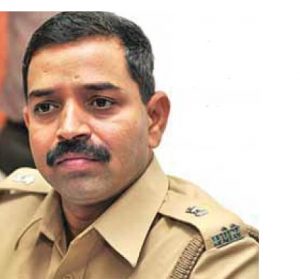 The duties of an Assistant or Deputy Superintendent of Police in charge of a Sub- Division are similar, subject to their limitations, to those of the Superintendent of Police. These Officers function subject to the orders of the Superintendent of Police, whom they are bound to keep fully informed of their doings and of what is going on in the Sub-Division, and to consult him in all matters of difficulty. Correspondence, other than matters of routine, with other departments should be routed through the Superintendent of Police.
The duties of an Assistant or Deputy Superintendent of Police in charge of a Sub- Division are similar, subject to their limitations, to those of the Superintendent of Police. These Officers function subject to the orders of the Superintendent of Police, whom they are bound to keep fully informed of their doings and of what is going on in the Sub-Division, and to consult him in all matters of difficulty. Correspondence, other than matters of routine, with other departments should be routed through the Superintendent of Police.
(a) Supervision of Investigation
Sub-Divisional Police Officers shall as a rule visit the scenes of crime and supervise the investigations in the heinous cases. They shall also take up personal investigation in complicated or important cases. Dowry death cases unless taken over by the special cell, will be investigated by the Deputy Superintendent of Police of the Sub-Division.
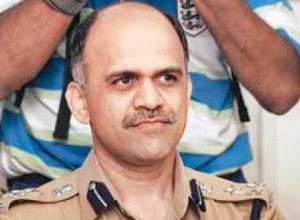 On reaching the scene of crime a Sub-Divisional Police Officer shall inspect it and examine all the witnesses. He shall then study the case thoroughly and discuss the evidence available and further evidence to be collected and ensure that the case dairies are written promptly and correctly under his supervision. He should normally remain in the scene of occurrence with the Investigating Officer and continue to supervise till the investigation is virtually completed. In cases where definite clues are not forthcoming, the Sub-Divisional Police Officer and the Circle Inspector of Police should camp in the village of occurrence till the case is detected or even after sustained and vigorous efforts, it is decided for want of further time, to leave further investigation to the local officers. They should, however, resume the supervision of the investigation as soon as possible if necessary. In case the Sub-Divisional Police Officer receives information about the occurrence of another heinous crime while engaged in the supervision of the investigation of a case, he should decide whether the second case requires his immediate attention and if he feels that it is necessary for him to proceed for the supervision of the investigation of the second case immediately, he should give detailed instruction to the Circle Inspector of Police and the Sub-Inspector regarding the lines of further investigation to be pursued before leaving the place of offence. If necessary, he should return to the supervision of the investigation of the first case after completing the supervision of investigation of the second case. If, on the other hand, he feels that the investigation of the first case is more important than that of the second, he should continue the supervision of investigation of the first case and proceed after its completion for the supervision of investigation of the second case.
On reaching the scene of crime a Sub-Divisional Police Officer shall inspect it and examine all the witnesses. He shall then study the case thoroughly and discuss the evidence available and further evidence to be collected and ensure that the case dairies are written promptly and correctly under his supervision. He should normally remain in the scene of occurrence with the Investigating Officer and continue to supervise till the investigation is virtually completed. In cases where definite clues are not forthcoming, the Sub-Divisional Police Officer and the Circle Inspector of Police should camp in the village of occurrence till the case is detected or even after sustained and vigorous efforts, it is decided for want of further time, to leave further investigation to the local officers. They should, however, resume the supervision of the investigation as soon as possible if necessary. In case the Sub-Divisional Police Officer receives information about the occurrence of another heinous crime while engaged in the supervision of the investigation of a case, he should decide whether the second case requires his immediate attention and if he feels that it is necessary for him to proceed for the supervision of the investigation of the second case immediately, he should give detailed instruction to the Circle Inspector of Police and the Sub-Inspector regarding the lines of further investigation to be pursued before leaving the place of offence. If necessary, he should return to the supervision of the investigation of the first case after completing the supervision of investigation of the second case. If, on the other hand, he feels that the investigation of the first case is more important than that of the second, he should continue the supervision of investigation of the first case and proceed after its completion for the supervision of investigation of the second case.
In case the Sub-Divisional Officer receives information about the occurrence of a heinous crime while engaged in inspection, he should stop his inspection, proceed to the scene of offence, and resume inspection after his visit to the scene of heinous offence.
(b) Heinous Crime Report
Immediately after visiting the scene in a heinous crime, and in any case not later than a week of the issue of the FIR the Sub-Divisional Police Officer should send a detailed report in duplicate to the Superintendent of Police, who will forward one copy to the Range Dy. Inspector General. A grave crime report should be sent by theSub-Divisional Police Officer in a heinous crime even if it has not been investigated by him and even if it is treated as false or as a mistake of fact.
(c) Progress Report
Progress reports should be sent in duplicate every week till the final disposal of the case to the Superintendent of Police, who will forward a copy of it to the Dy. Range Inspector General of Police. It is open to the Superintendent and the Range Officers to order the discontinuance of progress reports in any particular case. Detailed progress reports received by the Range Dy. Inspector General of Police should be filed in his office, where a watch should be maintained over the progress and disposal of cases. Copies of grave crime reports and their progress reports should not be sent to the office of the Director General.
(d) Weekly Diary
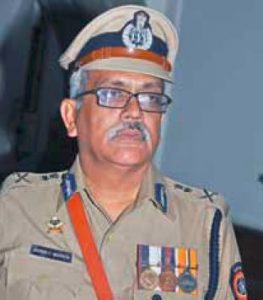 The Sub-Divisional Police Officer should prepare and maintain a diary which should be written in ink in his own handwriting or typed with his initials on each page and it should be written on day-to-day basis, the entries for the previous day being made on the morning of the following day. The diary should contain details of all movements and every type of duties performed by him whether of a routine nature or not and whether in headquarters or on tour. The Sub-Divisional Police Officer will send a weekly report which is a true copy of the diary to the Superintendent of Police and Range DIG. The weekly report should commence from Monday of the week. The copies of the Weekly reports should be sent to the concerned officers with the superscription “Weekly Report” and they should be opened by the addressee only and none else on their behalf. All the case diaries received from the Inspectors should be scrutinized by the Sub-Divisional Police Officer and necessary instructions should be passed upon them and communicated to the Investigating Officer.
The Sub-Divisional Police Officer should prepare and maintain a diary which should be written in ink in his own handwriting or typed with his initials on each page and it should be written on day-to-day basis, the entries for the previous day being made on the morning of the following day. The diary should contain details of all movements and every type of duties performed by him whether of a routine nature or not and whether in headquarters or on tour. The Sub-Divisional Police Officer will send a weekly report which is a true copy of the diary to the Superintendent of Police and Range DIG. The weekly report should commence from Monday of the week. The copies of the Weekly reports should be sent to the concerned officers with the superscription “Weekly Report” and they should be opened by the addressee only and none else on their behalf. All the case diaries received from the Inspectors should be scrutinized by the Sub-Divisional Police Officer and necessary instructions should be passed upon them and communicated to the Investigating Officer.

